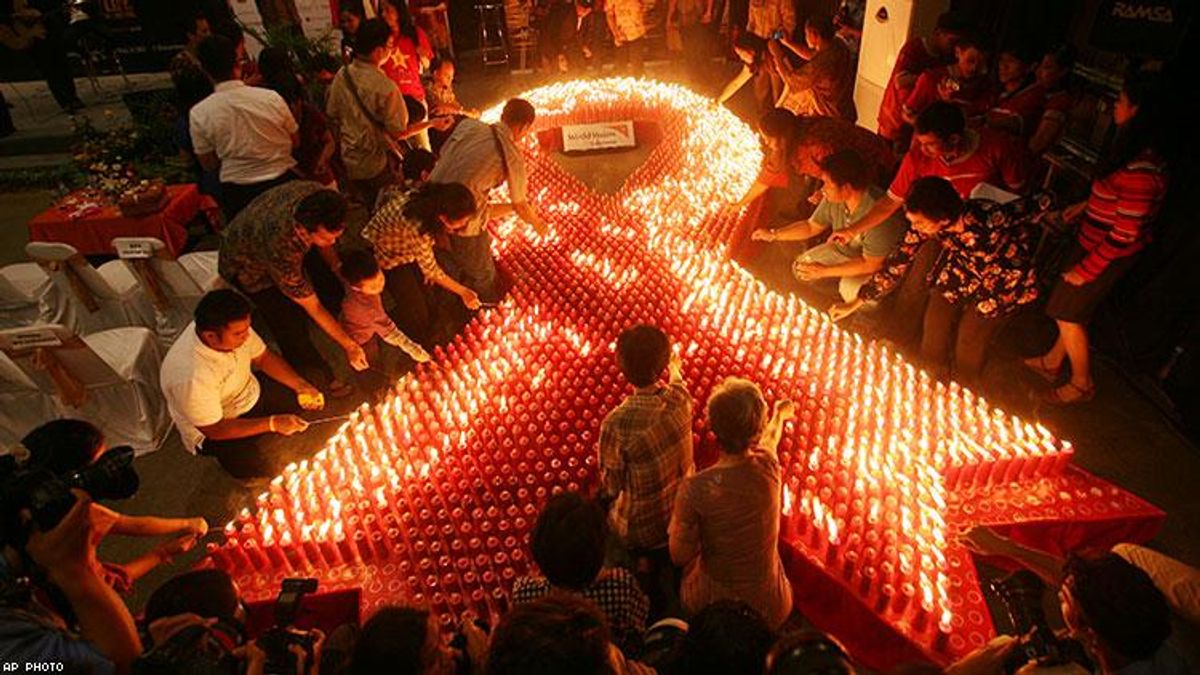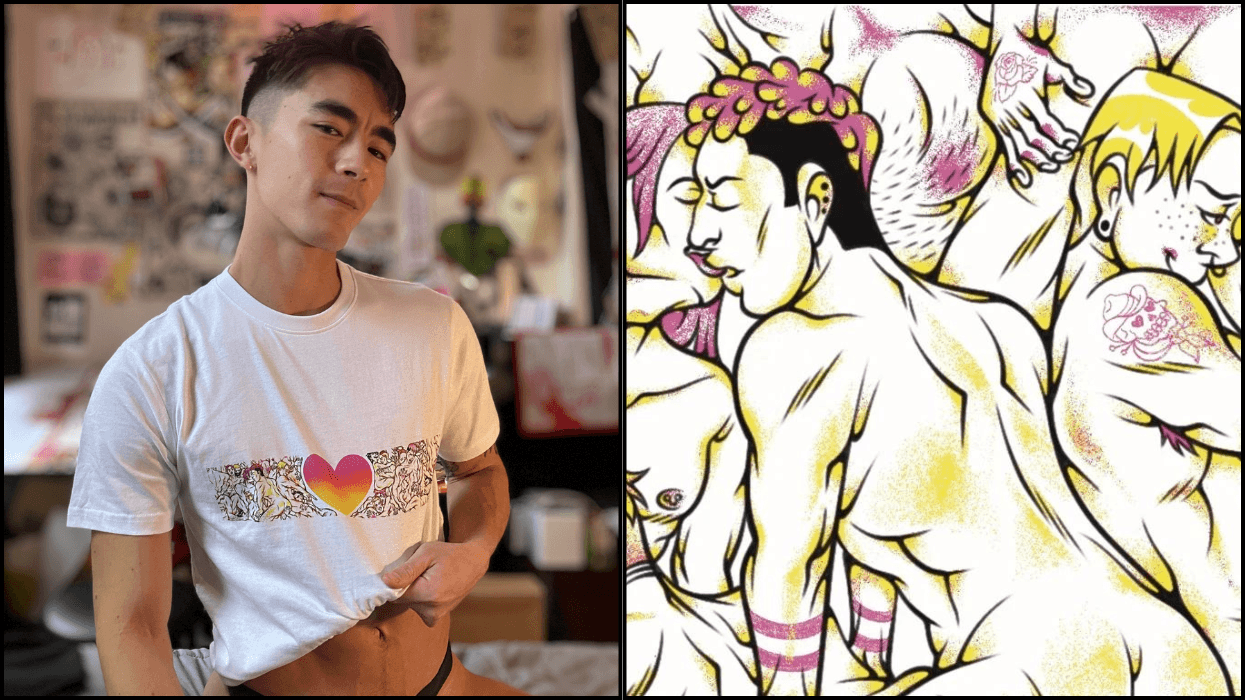HIV
Indonesia's Gay Hate Is Fueling an HIV Crisis

Transmission rates have quintupled among gay and bi men, according to a frightening new report.
July 02 2018 3:09 PM EST
July 23 2019 3:22 AM EST
By continuing to use our site, you agree to our Private Policy and Terms of Use.

Transmission rates have quintupled among gay and bi men, according to a frightening new report.
Indonesia's state-sponsored homophobia and transphobia is contributing to an explosion of HIV transmissions and a resultant public health crisis, according to a new report by Human Rights Watch.
Homophobia has been rampant in the world's largest Muslim democracy since 2016, when reports of arrests and raids on private spaces that hosted LGBT events surfaced. These attacks have been accompanied by frequent homophobic comments made by Indonesian leaders, such as Prosperous Justice Party politician Nasir Djamil, who said, "The LGBT community is a serious threat to the nation. It should not be allowed to grow or be given room to conduct its activities," in 2016. Other authorities suggested everything from the criminalization of LGBT people to finding a "cure" for homosexuality, and pushed the censoring of positive information relating to LGBT people.
"LGBTI Indonesians already face increasing stigma, threats and intimidation," the United Nations high commissioner for human rights said after a visit to Indonesia in February. "The hateful rhetoric against this community that is being cultivated seemingly for cynical political purposes will only deepen their suffering and create unnecessary divisions."
The protection of LGBT-friendly venues is extremely important for HIV outreach workers, who utilize saunas and clubs as safe spaces for HIV treatment. The intense antigay sentiment in Indonesia has it made it extremely difficult for these outreach workers, who utilize these venues as opportunities to conduct educational services on HIV prevention and transmission, counselling and support services, and the distribution of condoms and HIV testing kits.
"What's shifted in the last two years is that the government and police have made it abundantly clear that it's perfectly okay to hate LGBT people and to act on it," Kyle Knight, LGBT rights researcher at HRW and author of the report, said in a press release. "Unless certain steps are taken to dial back on these raids, to create safe spaces for those to gather to gain information, to get safety, sense of dignity, community and privacy, this will spin out of control not just from a human rights perspective, but also from a public health perspective."
According to government and UNAIDS data, HIV rates among gay men in Indonesia have increased from 5 percent in 2007 to 25 percent in 2015. While most new HIV infections in Indonesia are conudcted as a result of heterosexual sex, one third of new transmissions occur in men who have sex with men (MSM). Without safe spaces to conduct treatment, education, and prevention services, outreach workers and human rights observers fear that that number will only increase as time goes on.
"Widespread stigma and discrimination against populations at risk of HIV, as well as people living with HIV, has discouraged some HIV-vulnerable populations from accessing prevention and treatment services," the new HRW report says.
"Violence will always be there -- it always has been with us," Nigrat L., a 47-year-old transgender woman outreach worker in Jakarta, said. "It's just part of our lives. It's normal."
The newly released 70-page report, titled "Scared in Public and Now No Privacy: Human Rights and Public Health Impacts of Indonesia's Anti-LGBT Moral Panic," says that Indonesian authorities have consistently gone against the law to discriminate against sexual and gender minorities in the country, sometimes working with militant Islamist groups to do so. According to the report, as many as 300 people were detained in 2017 as a result of the raids conducted on "saunas, night clubs, hotel rooms, hair salons and private home on suspicion that LGBT people were inside."
The report said that in 2017, three raids resulted in MSM HIV counselling services being shut down.
"It is devastating that these clubs have closed. They were the only places where we could find the community," said an HIV outreach worker in Jakarta.
"The vitriolic anti-LGBT rhetoric from public officials that began in early 2016 effectively granted social sanction and political cover to violence and discrimination," Knight said. "To correct its course, the government needs to uphold its commitments to 'unity in diversity' by halting and investigating unlawful police raids and ensure discrimination is not enshrined in its laws."
Want more breaking equality news & trending entertainment stories?
Check out our NEW 24/7 streaming service: the Advocate Channel!
Download the Advocate Channel App for your mobile phone and your favorite streaming device!

